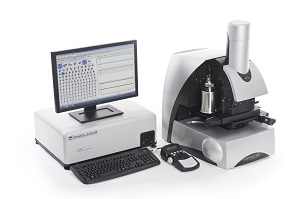The Association of the Austrian Cement Industry (VÖZ) (Vienna, Austria), a partner organization for the Austrian building and construction industry, is using the Morphologi G3-ID from Malvern Panalytical to gain new insight in work involving the characterization of cement and other construction materials.

The Morphologi G3-ID is an advanced particle characterization system that combines automated static imaging with chemical identification of individual particles using Raman spectroscopy. Currently at an early stage in its work, the Association is leading the way in applying the Morphologi G3-ID to the analysis of the various components of cement.
“The Morphologi G3-ID is an excellent tool for the characterization of size and morphological form, with the added advantage of enabling chemical identification of the species present,” said Dr Ameneh Schneider at the Association of the Austrian Cement Industry. “Although we are only just beginning to explore its potential we believe that the added insight it brings will significantly enhance our research. The Morphologi G3-ID has proven straightforward and easy to use and we’ve already been successful in expanding our application of it into areas beyond construction materials, testing food samples for example. This makes the system a valuable addition to our overall contract research capability.”
Both composition and particle size are key parameters for cement manufacture, with a defining influence on end use performance. The capability of the Morphologi G3-ID to analyze and characterize specific particle populations within a diverse dispersion brings new insight for conventional cement manufacture. It also has the potential to support industry objectives to successfully incorporate environmentally sustainable replacement materials, such as fly ash and blast furnace slag.
The Morphologi G3-ID measures the size, shape and chemical identity of particles using automated image analysis in combination with Raman spectroscopy. The instrument captures images of individual particles by scanning beneath the dispersion using advanced optics. Discrete particle populations can then be classified and targeted for further spectroscopic analysis. Already used within the pharmaceutical industry, the instrument is finding increased use in a range of powder processing applications, such as in the research and development of construction materials. The Association of the Austrian Cement Industry is the first Institute in Europe to apply the Morphologi G3-ID to construction materials and is leading the way in assessing the potential value of the instrument in this area.